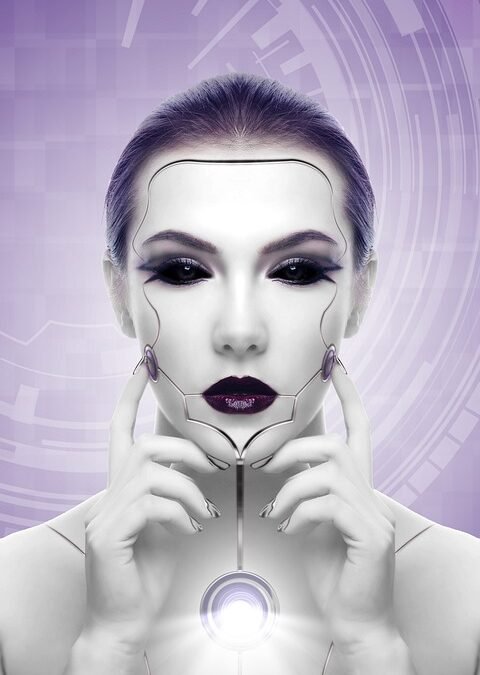Harnessing the Power of Knowledge: A Guide for Lifelong Learning
Introduction
In a rapidly changing world, the ability to learn and adapt is crucial for personal and professional growth. Lifelong learning is the process of acquiring knowledge and skills throughout one’s life, empowering individuals to stay relevant and thrive in any field or industry. This article serves as a comprehensive guide to harnessing the power of knowledge through lifelong learning, providing insights, strategies, and resources to support your continuous growth journey.
1. The Benefits of Lifelong Learning
Lifelong learning offers various benefits that extend beyond acquiring new information. It enhances critical thinking, problem-solving, and decision-making abilities. Additionally, it boosts self-confidence, creativity, and adaptability, enabling individuals to navigate complex challenges effectively. Lifelong learning also promotes personal development, expands social networks, and contributes to a sense of fulfillment and purpose.
2. Strategies for Effective Lifelong Learning
2.1 Set Clear Goals
Establishing clear learning goals is crucial for staying focused and motivated. Identify specific areas of interest or skills you want to develop, and break them down into achievable milestones. Setting realistic deadlines and tracking your progress will help maintain momentum and ensure continuous growth.
2.2 Embrace Curiosity
Curiosity is the driving force behind lifelong learning. Cultivate a thirst for knowledge by asking questions, seeking answers, and exploring new perspectives. Embrace a growth mindset that views challenges as opportunities for learning and improvement.
2.3 Diversify Learning Methods
Experiment with various learning methods to find what works best for you. Traditional methods like reading books and attending lectures can be complemented with digital resources, online courses, podcasts, or interactive workshops. Embrace a mix of self-directed learning and structured programs to enhance your learning experience.
2.4 Cultivate Learning Habits
Consistency is key to lifelong learning. Develop a routine that incorporates dedicated time for learning activities. It can be as simple as setting aside 30 minutes each day or allocating specific days of the week for focused learning. By making learning a habit, you ensure continuous progress and prevent knowledge gaps.
2.5 Seek Mentors and Peers
Surrounding yourself with knowledgeable individuals can greatly accelerate your learning journey. Seek mentors who can guide you and provide valuable insights. Engage with like-minded peers through communities, online forums, or networking events. Collaborating with others fosters knowledge sharing and creates opportunities for mutual growth.
2.6 Reflect and Apply Learning
Reflection is an essential part of the learning process. Take time to review and consolidate the knowledge you’ve acquired. Reflect on how you can apply it in real-life situations or your professional endeavors. Actively practicing and sharing what you’ve learned reinforces retention and deepens understanding.
3. Resources for Lifelong Learning
3.1 Online Platforms and Courses
Online platforms like Coursera, edX, Udemy, and Khan Academy offer a vast array of courses on diverse topics. These platforms provide flexibility, allowing you to learn at your own pace and access high-quality educational content from renowned institutions and industry experts.
3.2 Books and E-books
Books remain a timeless and valuable source of knowledge. Explore both fiction and non-fiction books to broaden your horizons and gain insights from different perspectives. E-books provide the convenience of access to a vast library of resources instantly, often at a lower cost than physical copies.
3.3 Podcasts and Audiobooks
Podcasts and audiobooks offer a convenient way to learn while multitasking or on the go. There are numerous educational podcasts covering various subjects, allowing you to learn from experts and industry leaders during your daily commute, workout sessions, or downtime.
3.4 Webinars and Virtual Events
Webinars and virtual events provide opportunities for interactive learning and networking. Many organizations and educational institutions host webinars on specific topics or invite experts to share their knowledge. These events often include Q&A sessions, enabling participants to engage directly with the presenters.
3.5 Online Communities and Forums
Joining online communities and forums related to your areas of interest fosters knowledge sharing and collaboration. Platforms like Reddit, Quora, or specialized forums provide spaces to ask questions, share insights, and connect with individuals who share your passion for learning.
4. Frequently Asked Questions (FAQs)
Q: Can anyone become a lifelong learner?
A: Absolutely! Lifelong learning is for everyone. It doesn’t require any specific qualifications or age limits. The desire to learn and grow is what matters most.
Q: How much time should I dedicate to lifelong learning?
A: The amount of time you dedicate to lifelong learning depends on your personal commitments and goals. Start with small but consistent efforts, such as allocating 30 minutes to an hour each day, and adjust as needed. The key is to maintain a regular learning habit.
Q: How can I overcome barriers to lifelong learning?
A: Common barriers to lifelong learning include lack of time, motivation, or access to resources. Prioritize learning by setting clear goals, creating a supportive environment, and utilizing available resources such as online platforms, libraries, or community programs. Remember that small steps and consistent effort can overcome any barrier.
Q: Can lifelong learning enhance my career prospects?
A: Absolutely! Lifelong learning equips you with new skills, knowledge, and adaptability, making you more valuable to employers. It demonstrates a commitment to growth and continuous improvement, which can significantly enhance your career prospects and open doors to new opportunities.
Conclusion
Lifelong learning is a powerful tool for personal and professional growth. By harnessing the power of knowledge, you can continuously adapt, thrive, and contribute to a rapidly changing world. Remember to set clear goals, embrace curiosity, diversify learning methods, cultivate learning habits, seek mentors and peers, and reflect on your learning journey. Utilize the wide range of resources available, such as online platforms, books, podcasts, webinars, and communities. Start your lifelong learning journey today and unlock your full potential!

